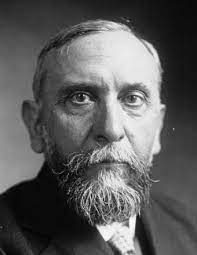Bouglé, Célestin

Bio: (1870-1940) French sociologist. Célestin Bouglé was a close associate of Durkheim and one of the editors of L'Année Sociologique. He also taught at one of the most eminent French colleges, the École normale supérieure. Unlike Durkheim, he believed that the sociological method should pay more attention to the individual consciousness of people. In his work Egalitarian Ideas (1899), he stated that egalitarian ideas are as much a product of modern society as they are its initiator. In his study of the caste regime in India, Bugle concluded that such a hierarchical structure has an impact not only on the legal system but also on weak economic development. The essence of caste organization is united by three tendencies - prohibition and refusal of contacts between castes, hereditary specialization, and hierarchy - and the caste of Brahmins (religious leaders) has the greatest benefit from such a system. Bugle was an advocate of the ideology of solidarity, which was quite widespread in France at the time.
Theoretical approaches
Durkheimian SchoolMain works
Les idées égalitaires: Étude sociologique (1899);
La démocratie devant la science (1904);
Qu'est-ce que la sociologie? (1907);
Essais sur le régime des castes (1908);
La sociologie de Proudhon (1911);
De la sociologie à l'action sociale: Pacifisme – Féminisme – Coopération (1931);
Le solidarisme (1924);
Éléments de sociologie (1926);
La sociologie économique (1929);
Proudhon (1930);
Humanisme, sociologie, philosophie (1938).
Works translated into English:
Essays on the Caste System (1971, in French 1908).

